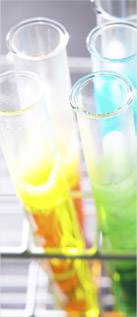KEY QUESTIONS:
| Q: | Which is the more reliable test, blood or captured breath? |
| A: | Blood. The least reliable is urine. |
| Q: | How long after I have been drinking will my BAC show up as zero? |
| A: | The typical body burns off alcohol at a rate of 0.015 BAC/hr. Thus if you were at a 0.30 BAC, it would take 20 hours to burn off. These numbers are approximations. |
| Q: | Why does the result of a blood test from a hospital seem to be higher than that from your laboratory? |
| A: | Hospitals usually test blood serum, CG Labs, Inc tests whole blood. To convert blood serum results to whole blood, divide the blood serum reading by 1.14 Additionally hospitals typically don't use head space gas chromatography nor do they like sending their technicians and lab director to court to testify. |
| Q: | A report from a hospital said the blood alcohol was 200 mg/dL, could this be true? |
| A: | 200 mg/dL is equivalent to 0.200 g/100 mL which is equivalent to 0.200 % w/v. Different units of measurement give values that look differently. |
| Q: | I was working around solvents and paints the day I was stopped for DWI. Can my breath test be affected by these chemicals? |
| A: | Possibly yes, there could be interference with a breath test. An analysis of the captured second sample might be able to verify the presence of these other compounds and get a correct BAC reading. |
| Q: | Do drugs show up in breath or blood tests? |
| A: | Breath machines would not detect drugs. If drugs are in your blood they can be tested by using more sophisticated means than static head space gas chromatography. |
| Q: | Can prescribed or over the counter drugs interfere with a BAC? |
| A: | Yes. H2-receptor antagonists such as Cimetidine and Ranitidine (JAMA 1992;267:83-86) have been shown to give a higher than expected BAC. Aspirin (JAMA 1990:264:2406-2408) has also been found to increase an individual's BAC above what is expected. |

